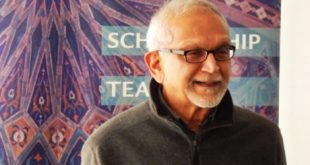On the 19th – 20th April 2018, the Centre for Middle Eastern Studies, University of Bergen will host the workshop Maslaha, Siyasa and Good Governance: Shari’a and Society.
A challenge for the Islamic Shari’a is that it should span from a religious ideal to a social and political reality. Islamic thinkers have long discussed whether this should primarily take the form of a fixed set of rules to be applied “because God has said so”, or whether these rules reflect a divine intention (Ar. maqasid) which humans can grasp, the intention of welfare for mankind (maslaha). If the latter, should Muslims seek the rules and methods that best furthers these intentions in contemporary society? This has been a central issue for reform and modifications of Islamic practices for centuries, as well as today.
Linked to this discussion is the issue of authority. The Shari’a gives the state (the “ruler”) the authority to implement rules and make decisions beyond the literal rules of the Shari’a when they follow its intentions, this is called siyasa shar’iya, “Shari’a politics”. How the limits for the state’s freedom of action within Shari’a thinking goes, depends on the relationship between the ruler and the religious authorities at any time.
How are these topics discussed today? This workshop will focus on the use of concepts such as maslaha and siyasa in Islamic discussion of reform and orthopraxy. To what degree do Islamic NGOs appeal to maslala in their activities? To what degree do Muslim thinkers today use the terms of siyasa and maslaha in their discussions of state activities and laws in Muslim, mixed and non-Muslim states? A central concept for many state-oriented NGOs is “good governance”. This term, which may be used for accountability of the ruler, or more widely for works promoting democratic practices, is in many ways akin to “promotion of public welfare”, i.e. maslaha.
Important Dates
Abstracts Submission Deadline: Monday 30th October 2017
Conference Dates: 19th – 20th April 2018
Venue: The Centre for Middle Eastern Studies, University of Bergen, Norway
Workshop Objective
The object of this workshop is to see the relationship between these modern ideas of reform and the classical fiqh debates on the same topics. Do modern Islamic thinkers refer to the classical debates at all; and if so, are the fiqh concepts simply used as rhetoric, putting a classical name to a modernist concept, or are contemporary debates informed about the classical fiqh argument? How is the fiqh debates of the past used in the present?
Keynotes speakers will be:
Felicitas Opwis, Georgtown University
Mohammad Fadel, University of Toronto
The workshop will also include participants from civil society organizations.
Papers are invited from a variety of approaches and subjects within the framework described above, from graduate students to established researchers.
Abstracts should be submitted to www.usppip.eu/bergen/ before Monday 30th October 2017. Those giving papers selected for the workshop will have travel expenses and accommodation/subsistence provided by the USPPIP project.
 Ijtihad Network Being Wise and Faithful Muslim in the Contemporary World
Ijtihad Network Being Wise and Faithful Muslim in the Contemporary World
